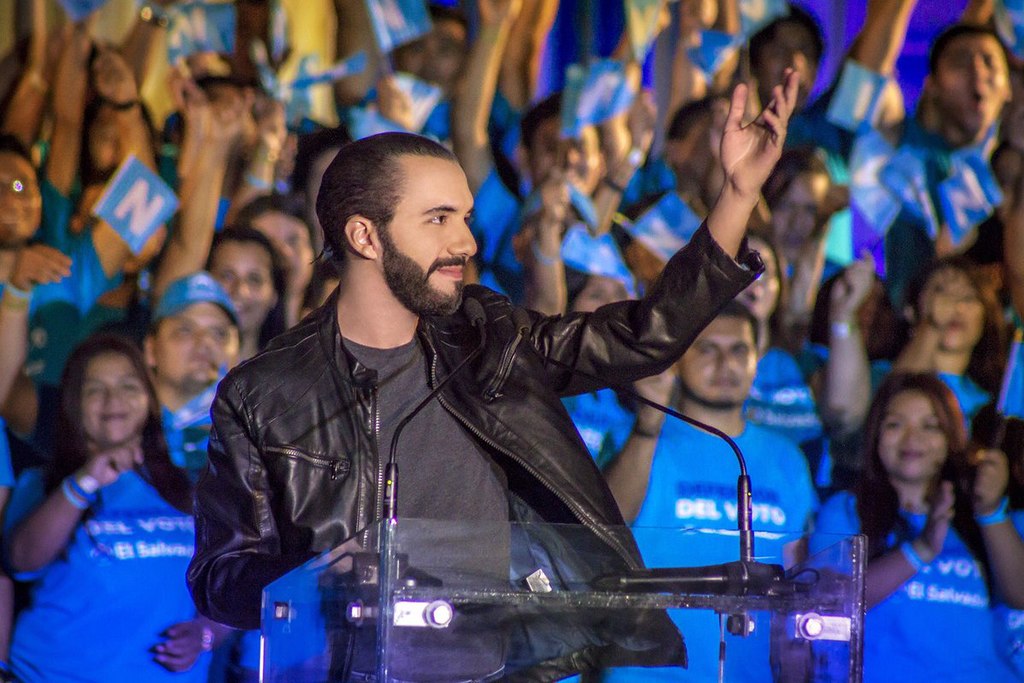In El Salvador, in the last days of March this year, 70 people were murdered in different parts of the country, the highest number in 20 years. After dozens of bodies were discovered in different places, in 12 of the 14 departments of the country, President Nayib Bukele mobilized his deputies to approve a decree of the “Regime de Exception” that came into force on March 27. In addition, the National Civil Police was authorized to detain anyone considered suspicious for investigation.
In that context, the “
El Faro” news reported that “Since the signing of the Peace Agreements, there are no records that an equal measure has been decreed for reasons of violence, and the only similar precedent is the special decree issued during the pandemic to restrict, among others, the right of free transit”.
According to
Latino Observatory, “Most of the killings took place in territories controlled by Mara Salvatrucha-13 (MS-13). But, according to data from the Workers' Movement of the National Civil Police, also according to El Faro, victims who died violently did not necessarily have a history of connection with criminal gangs, since at least 30 people killed worked or carried out economic activities background and had no criminal record such as street vendors, bakers, motorcyclists, and construction workers”.
So far, both in El Salvador and among the Salvadoran immigrant population in the United States, many support Bukele’s strategy, while others call attention to the suspension of civil liberties and other controversial measures.
According to the
NBC News, Bukele's recent roundups and crackdowns, which have included reports of deaths, have drawn international scrutiny. According to human rights groups, authorities have committed “serious human rights violations,” including dozens of arbitrary arrests. Over 43,000 people have been arrested since the state of emergency began in late March, according to official data. There are over 60 “credible reports” of deaths in custody, according to Human Rights Watch.
Recently Nayib Bukele tweeted about major rallies held in support of him in Los Angeles, Houston and Long Island. Although there are no surveys in the United States that indicate the level of support for the Salvadoran president in the country, in the Los Angeles area, which is home to the largest Salvadoran population in the United States, as well as in other cities, support for him has been growing. In El Salvador, Bukele's approval rating rose to nearly 90%, according to NBC.
Most of those who support him approve of the president's repression of gangs pointing to the decline in violence since the leader took office in 2019. However, some experts claim that the violence has subsided because his government has negotiated a truce with the gangs, which he denies.
A giant prison for 40,000 gang members is under construction. The "Terrorism Confinement Center" will be ready within 60 days, Bukele wrote in a tweet.
“Many Salvadorans have grown tired of the violence and lawlessness that have plagued the country for decades. Although the homicide rate fell in recent years, the small Central American country has been referred to in the past as the murder capital of the world. For decades, violence has prompted many Salvadorans to migrate to the U.S., leading the Salvadoran immigrant population to explode from 95,000 in 1980 to over 1 million today. There are over 2.3 million people of Salvadoran origin residing in the U.S., comprising the third largest Hispanic group. After El Salvador’s bloody civil war ended in 1992, the U.S. deported thousands of Salvadorans that had ties to gangs founded in Los Angeles during the 1980s. Once in El Salvador, the gangs flourished into a transnational criminal network. The years of violence and instability has caused frustration, with government leaders unable to control it”, according to the NBC.
“Iris Lara Cubias, president of Juntos Por Una Sonrisa Shulton L.A. Foundation, said Bukele is doing a good job in providing the country with a heightened sense of security as well as more hospitals and resources”.
Yesenia Portillo, a Salvadoran American activist raised in Los Angeles, said that “Feminists, LGBTI+, labor, and environmental organizations in El Salvador have been taking to the streets by the tens of thousands to criticize his policies and that often doesn’t get highlighted”.
Despite the contradictions surrounding the themes of democracy and freedom, it is possible to notice the increase in the support movements of Salvadorans in the USA from the pro-Bukele rallies and his reelection in Los Angeles, Long Island and Houston organized by “Salvadoreños en el Exterior”. However, this may not reflect what Salvadorans at home really think, the publication highlights.
 commons.wikimedia.org
commons.wikimedia.org











